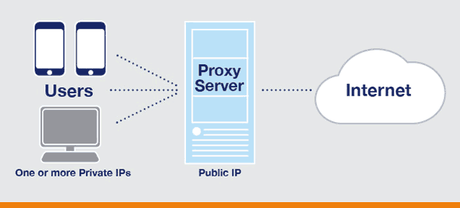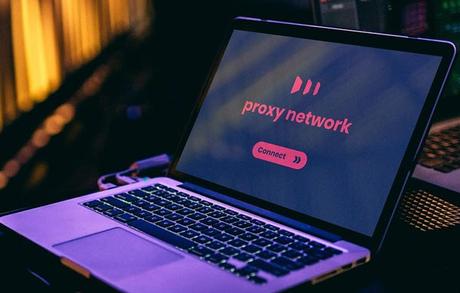The need for secure and private internet access keeps growing as the world becomes more interconnected. This has seen the need for VPNs grow, with the market estimated to reach $90 billion in the next four years. If you want to scrape the internet, then using a proxy server is your best friend as it keeps the scraper protected and anonymous.
However, before you connect to a web scraping API, you need to understand how proxy servers work, the different types, the benefits they offer, and how to use them to achieve your main objective of scraping the internet.
How A Proxy Server Works

Think of a proxy as an intermediary server between you and your target website. It has its own IP address. Thus, when you request to access a given website using the proxy, it will send and receive the data to the proxy server IP and forward it to you. As a website owner, you will use proxies for many reasons, such as improving your security and balancing internet traffic, since web scrapers will employ proxies to hide their identity and make their traffic appear as if it's coming from regular users. Also, as a web user, you can use proxies to access blocked websites in your region and, most importantly, protect your personal data.
What Type Of Proxy Servers Exist?
As a business owner, there are several proxies serves at your disposal, including;
A forward proxy that serves as an intermediary between you and any server. This allows you to make requests to websites according to the administration's internet use policies. Forward proxies fall into three categories; datacenter IPs, residential IPs, and The latter two are the most coveted by web scrapers since they resemble actual users; however, they are the hardest to acquire.
A reverse proxy server will intercept requests for users to access the web data and accept or deny access as it is positioned at the web server's end. Doing this ensures websites are not overloaded with denial of service (DoS) attacks.
What Benefits Can Your Business Access From Using Proxies For Web Scraping?

As a business owner, you will use web scraping to extract valuable data on industries and market insights to make data-driven decisions and offer data-powered services. For this reason, forward proxies will enable you to scrape data effectively from various web sources. Some of the benefits to be realized include:
Increase security - by employing the services of a proxy server, you will add an extra layer of privacy by hiding the user's machine IP address.
Circumvent IP bans - since most business websites will set a limit on the amount of crawlable data, thus stopping scrapers from making too many requests which slow the websites down, employing various proxies to scrape can allow you to get past the " " limits on the target website since you will be sending access requests from various IP addresses.
Gain access to region-specific content - as a business, you might want to scrap the web to gain insight into a competitor's offering in a specific geographical location. To achieve this goal, you can employ the services of residential proxies with IP addresses from the targeted region, providing you with content available to the region. Another advantage of doing this is that the requests will appear to come from the same region, making them less suspicious and likely to be banned.
Get to scrap more - so far, there hasn't been a proven way to determine if a website is being scraped. But, the more you engage in the activity, the more likely you will be tracked and found. That said, most scrapers will either access the same website too quickly or at certain times of the day or even reach web pages that are not directly accessible, which can put them at the risk of being found and banned. As a business owner, you can use proxies for anonymity, allowing you to make more crawls on the same or different websites.
As you can see, many benefits can be realized from using a proxy server for your business. Whatever your motivation, choosing the right web scraping partner will offer the best chance to achieve your goals.
